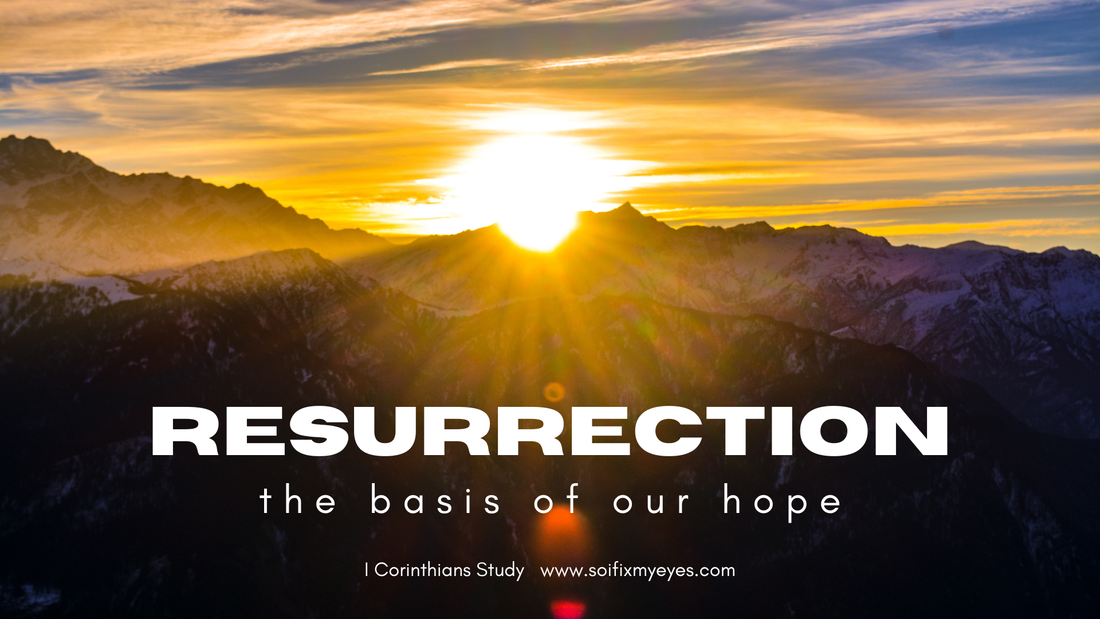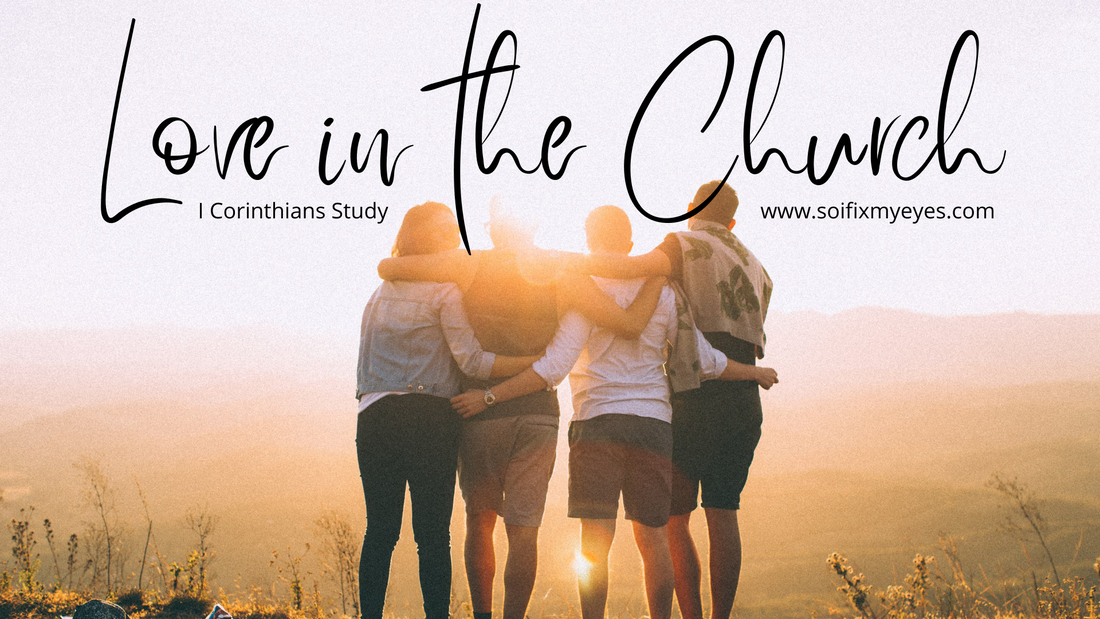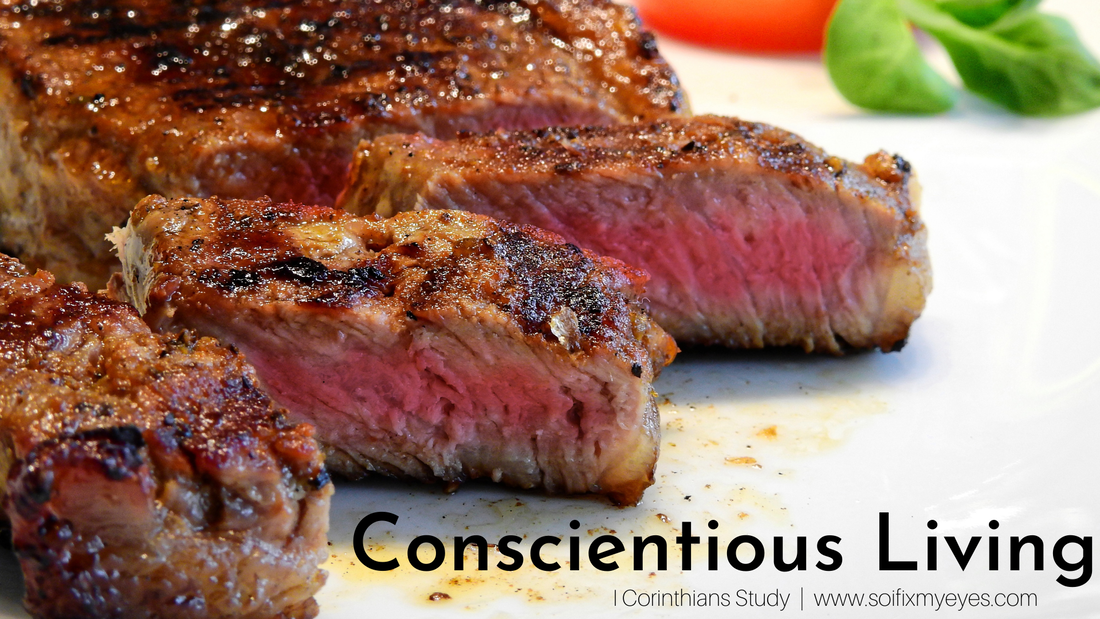Resurrection: The Basis of Our Hope11/1/2022 The gospel contains three core elements: Christ died was buried and then rose to life on the third day. Each of these elements is vital to our faith. If Jesus had not died, we would not be reconciled to God. And if He had not been buried then it would be hard to prove that He actually died. But the third point, Jesus’ resurrection, is the truth upon which our hope for the future is built. Since Jesus Christ defeated death and rose to life, we have hope of future resurrection with Him.
0 Comments
Keep the Gospel Central10/3/2022 After a lengthy discussion on spiritual gifts and their place within the church, Paul pivots in chapter fifteen to the central message of Christianity and upon which our faith is built. Here at the beginning of 1 Corinthians 15 is the simplest, most condensed version of the gospel. “Now I would remind you, brothers, of the gospel I preached to you, which you received, in which you stand, and by which you are being saved, if you hold fast to the word I preached to you—unless you believed in vain. For I delivered to you as of first importance what I also received: that Christ died for our sins in accordance with the Scriptures, that he was buried, that he was raised on the third day in accordance with the Scriptures.” ~1 Corinthians 15:1-4
Build the Church9/22/2022 In chapter thirteen, Paul outlined what agape love is and its importance in the life of the church. He noted that when compared to other aspects of the church, specifically that of spiritual gifts or God-given talents, love is the higher thing and more excellent way. Now, in chapter fourteen he pivots back to the topic of spiritual gifts and how we should view them in light of what we’ve learned about love.
Love in the Church12/4/2021 1 Corinthians 13 is known as the love chapter. One of the most frequently used passages in weddings, this chapter is often used in the context of romantic or familial relationships. But as we mentioned last time, the correct application of this passage is actually for interpersonal relationships with members of the church. Understanding this appropriate context gives this passage a whole new layer of meaning.
Love: The More Excellent Way11/13/2021 After a long discussion and explanation on the importance of the different gifts God gives and how all are needed for the Body of Christ to function fully, Paul wraps chapter twelve up with an important segue. “But earnestly desire the higher gifts. And I will show you a still more excellent way.” ~1 Corinthians 12:31 Contrary to what some people believe, Paul actually encourages and exhorts us to pursue and desire the “higher” gifts and be actively involved in using the supernatural gifts of the Holy Spirit to the build the Church of Jesus. Yet at the same time, he wants to make sure that we have the correct motivation and attitude in using these God-given abilities. While the gifts of the Spirit are wonderful, by themselves they are rather useless. They must be accompanied by love, which is the more excellent way.
Be United in Your Differences10/13/2021 Diversity is a big word in our culture. Our society usually bases it on ethnicity and superficial differences, promoting broad acceptance and in some cases bestowing greater favor upon those who fit under the category of “diversity.” However, celebrating differences and championing people’s unique design was originally God’s idea. In fact, God intentionally designed His people to be unique and different.
Uniformity was never part of God’s plan. He intended us to all be different and actually created us to be better together because of our differences. Therefore, while we live in a culture seeped in a faulty idea of inclusion and acceptance of diversity based on physical appearance, let’s look at what God has to say about celebrating differences, and let’s understand that God’s definition of diversity is actually vital to a healthy and vibrant church. Different Gifts, One Source10/6/2021 Spiritual gifts, an aspect of the Christian life that has brought much division and differing opinion within the Church over the years. In a sermon I recently listened to, Rick Caldwell wryly noted that the one thing that was meant to bring greater unity to the church has actually brought more disunity. I am not going to dive into the different opinions surrounding spiritual gifts, but rather focus on the main point Paul highlights in 1 Corinthians 12.
Remember with Reverence9/29/2021 Bread and wine or juice. To the Christian, these are symbols of remembrance, love, sacrifice, and suffering. Communion is one of the few symbolic acts Jesus told His disciplines to do. While the Old Covenant and Law of Moses were filled with rituals, practices, symbolic acts, and important duties, the New Covenant under the blood of Christ does not require the endless sacrifices and duties of the former covenant. However, Jesus did give us a special way in which we are to remember, reflect, and celebrate the great sacrifice made to purchase our freedom.
Headship: God's Designed Order9/22/2021 1 Corinthians is a book not many pastors systematically exposit through on Sunday mornings. While parts of this wonderful letter are used a lot—like chapter thirteen and parts of chapters eleven and twelve—much of the book is glossed over or ignored. The reason: it brings conviction and discomfort to different areas of life that we as American Christians would rather avoid, because they clash with our post-modern culture. However, the truths Paul wrote during the first century apply to our culture just as much as it did to the Corinthians’ era. While the detailed specifics may not translate perfectly, the general concepts and principles are just as relevant today as they were during the first century. So let’s dive into one of these commonly avoided sections of 1 Corinthians and glean the truths God has for us.
Conscientious Living9/15/2021 After speaking on the issue of idolatry, Paul circles back around to a prevalent cultural clash for the Corinthians: food sacrificed to idols. In chapter eight, Paul talked about it in the context of a believer visiting and partaking of meat sacrificed to idols within pagan temples. While Paul said that this in and of itself was not sin, causing another brother or sister in Christ to stumble because of the action and the context in which it was conducted is sin. Therefore, believers should abstain from eating meat within the temple for the sake of others. It’s part of surrendering our rights out of love for others.
|
Kristin RenferView the About page for more info on the author. Receive Posts via EmailArchives
November 2022
Categories
All
�
|











 RSS Feed
RSS Feed